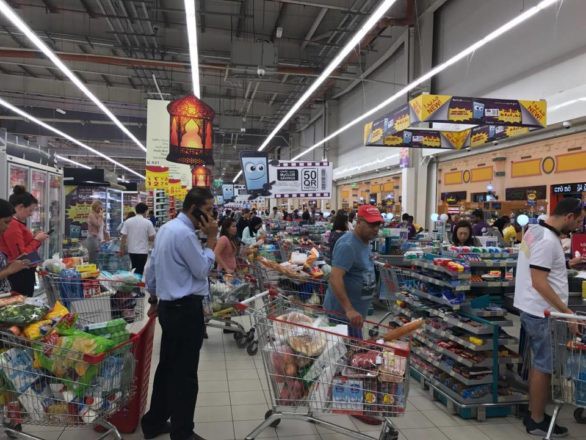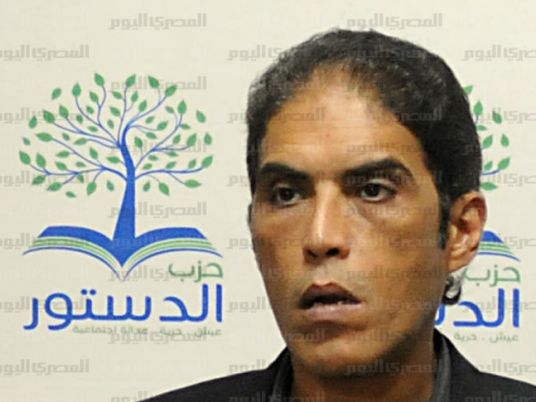A deal to merge the Egyptian Social Democratic Party and the Adl Party is “nearing completion,” according to Tamer al-Meehy, a member of the Social Democratic Party’s supreme committee.
“The intention is definitely to have some sort of merger between the parties,” said Meehy, who has participated in the negotiations. He expected members to begin working together in local constituencies within a few months.
The Adl Party’s high council met on Wednesday to discuss the terms of the agreement, which would ask both parties to settle on a “basic ideology,” according to Nora Soliman, a spokesperson for the Adl Party.
The terms of the merger are still under negotiation. One group could join another or they could decide to launch a new party.
Ahmed Shoukry, president of the Adl Party, said he hopes the deal will build a bridge between center-left and center-right political groups that split the vote in parliamentary elections and left both parties with fewer MPs than they expected.
“We have been seen as a conservative party, and they are seen as more liberal regarding social issues,” Shoukry said. “We are trying to build a broader centrist party.”
Meehy sought to downplay the need for either party to compromise its ideological foundation. Both parties share common policies, he said, but the Adl Party has focused on the “complexity of the identity problem in Egypt” while his party emphasized its economic platform.
“We see this as a valuable addition in terms of membership and social constituency,” Meehy said. “They have a presence among youth groups which we find very important for us strategically.”
The talks, which began two months ago, must overcome a history of failed attempts to forge a party with revolutionary credentials that can bridge the divide between Islamist and secular politics.
In parliamentary elections last fall, the Adl Party won only one seat when it ran alone after failing to attract other parties to its Third Way coalition. The Egyptian Social Democratic Party won 16 seats by joining forces with liberals in the Egyptian Bloc, a move that many say was at odds with its focus on economic social justice.
“The Adl Party is closer to us than the Free Egyptians Party,” Meehy said.
A spokesperson with the Egyptian Social Democratic Party suggested that several Adl Party members were ready to switch parties if the deal is not completed, but Soliman dismissed the rumor.
“This is a party with 17,000 members,” Soliman said. “People are always free to leave the party and join another.”
Soliman added that one or two prominent members may go, but a new leadership, expected to take the helm after elections in April, would be better placed to move the party forward.
Leading members of the Adl Party are backing the merger, but the party’s rank and file could scuttle the plans if they don’t like the terms of the agreement.
“Whether or not some members will secede, I don't know,” said Shoukry. “There are also members that don't like the idea of joining [the Egyptian Social Democratic Party].”
Ahmed Sakr, who directs the Adl Party’s activities in central Cairo, dismissed the idea that his party would merge with another. “We have our own vision for Adl Party to work individually,” he said.
Other party members who spoke to Egypt Independent appeared aware of the negotiations but did not expect their group to disappear in the future.
The Egyptian Social Democratic Party will convene a general assembly in April during which members could oppose the plan.
“It’s a possibility,” Meehy said. “But I don’t envision major problems.”
Shoukry said the talks were the first step in building a broader coalition. Public figures have been consulted but no other political parties are involved. “I think in the future, no party will stand alone,” he said. “We need to reconsider our vision for Egypt.”
If the merger goes ahead, it will face competition from other groups which claim to represent consensus among revolutionary forces. A number of political parties and activist groups announced Monday they were forming the Egyptian Revolutionary Council to unify demands for reform. Our Egypt, a separate initiative to overcome hostility between activists and ordinary Egyptians that is backed by Wael Ghonim, went public in January. Former presidential candidate Mohamed ElBaradei recently announced his own initiative to bring the country’s youth together to work towards change.
“I'm not that worried. Things are in flux, constantly changing,” Meehy said. “What you can see is a trend towards collective action, a trend towards unity among disparate groups.”



